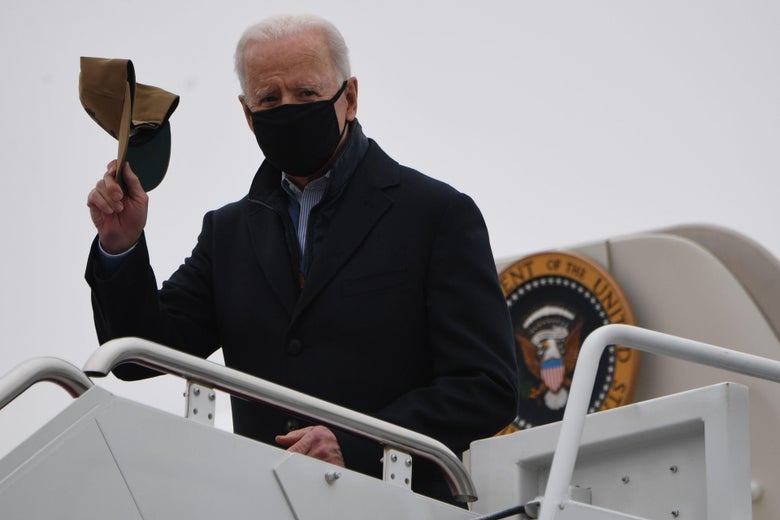
Sometime in the next week or so, either the United States and Iran will once again start abiding by the Obama-era nuclear deal or both countries will commit a diplomatic blunder of astonishing magnitude.
President Joe Biden and his Cabinet will conduct interagency reviews of various foreign policy questions over the next few months—how to deal with China and Russia, whether to pull out of Afghanistan, how to integrate national security interests with domestic economic interests without veering into protectionism. These are all complicated issues.
By contrast, the question of whether to rejoin the Joint Comprehensive Plan of Action, or JCPOA, as the Iran nuclear deal is formally known, is not complicated at all.
Biden came to the White House fully in favor of restoring the deal, which President Barack Obama and the leaders of five other countries had signed in 2015 and which President Donald Trump scuttled in 2018 for no good reason other than Obama had negotiated it. A highly detailed 159-page accord, it boiled down to this: Iran dismantles its nuclear program; the U.S. and the other signatories lift the economic sanctions that they had imposed as punishment for the illegal nuclear program. Most of Biden’s top national security advisers played some role in setting up, negotiating, or implementing the JCPOA during the Obama administration. Nobody on his team ever opposed it.
However, the obstacle is one of procedure and perceptions over who goes first. The Iranians are insisting that the U.S. lift sanctions before they stop enriching uranium; Biden and his team are insisting that Iran cut back on enriching uranium before they lift sanctions. It’s like a game of highway chicken where, at some point, the saner of the two drivers veers off the road to prevent a head-on collision. In the extreme version of this game, one of the drivers visibly throws his steering wheel out the window, forcing the other driver to pull over.
For a while, the last few weeks, it has seemed as if both drivers—the Americans and the Iranians—have been unscrewing their steering wheels. Could it be that the prospects for a deal might collapse, against both sides’ interests and desires, over a miscalculated bargaining gambit?
Laura Rozen reported on Tuesday that Iranian officials have escalated the tensions, warning that if the U.S. doesn’t move toward lifting sanctions by Feb. 23, they would not only proceed with enriching uranium but also withdraw from the Additional Protocol of the Non-Proliferation Treaty. This protocol—which 150 nations, including Iran, have signed since it was issued in 1997—authorizes the International Atomic Energy Agency to inspect nuclear sites, to verify that a nation is abiding by the NPT. If Iran follows through with its threat, this would be a drastic step: It would mean, quite aside from the fate of the nuclear deal, that no one can any longer assume that Iran is abiding by the more basic Non-Proliferation Treaty. It would mean that, as far as any outsider can tell, Iran is—or very soon will be—a nuclear state.
At least in their public statements, Biden officials have ignored the threat, restating their position—first articulated by Secretary of State Antony Blinken in his confirmation hearing and confirmed by Biden himself in a Feb. 7 interview with CBS News—that Iran will have to come back into compliance with the deal before the U.S. lifts sanctions.
It may be that third parties will have to get the ball rolling—and this may be on the verge of happening. Agence France-Presse reported today that on Thursday, French Foreign Minister Jean-Yves Le Drian will host talks with Blinken and Europe’s top diplomats. The topic will be Iran; the aim will be to save the nuclear deal.
In another encouraging development today, BBC reported that Iranian President Hassan Rouhani said that he is ready to return to compliance, as long as the U.S. and the other signatories lift sanctions, on whatever terms or schedule that Biden wants. “If Americans take one step, we will take one step,” Rouhani said. If the Americans take all the steps at once, we will take all the steps at once. If they want to do it gradually, fine. If they want a group of actions, fine.”
So a path to a solution seems clear: The Europeans devise a formula by which the U.S. and Iran do what they need to do simultaneously, step by step, with the EU and the International Atomic Energy Agency verifying each step. It would be daft if either Washington or Iran rejects the formula, whatever its precise terms may be, in favor of roaring ahead toward the head-on crash of highway chicken.
Blinken has suggested as much without expressly endorsing any such move. At a press conference on Tuesday, after repeating the administration’s line that Iran will have to take the first step toward complying with the deal, he was asked whether there might be some possibility of direct talks with Iran. Blinken replied, “Well, at some point, presumably, if there’s going to be any engagement on this, that would have to require diplomacy. That’s what we’re in the business of.”
This will be the first test of the Biden team’s aptitude for this business. Really, it shouldn’t be that hard.
"save" - Google News
February 18, 2021 at 02:40AM
https://ift.tt/3pvWSeU
Biden now has an opening to save the Iran deal. - Slate
"save" - Google News
https://ift.tt/2SvBSrf
https://ift.tt/2zJxCxA
Bagikan Berita Ini














0 Response to "Biden now has an opening to save the Iran deal. - Slate"
Post a Comment